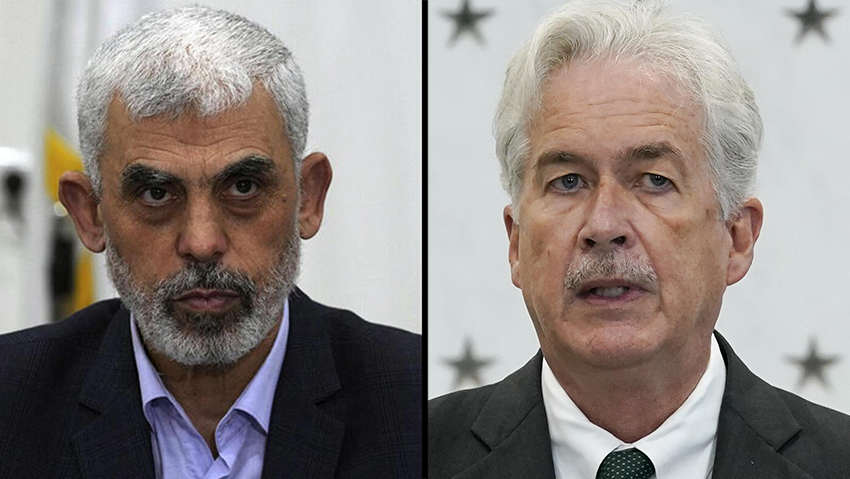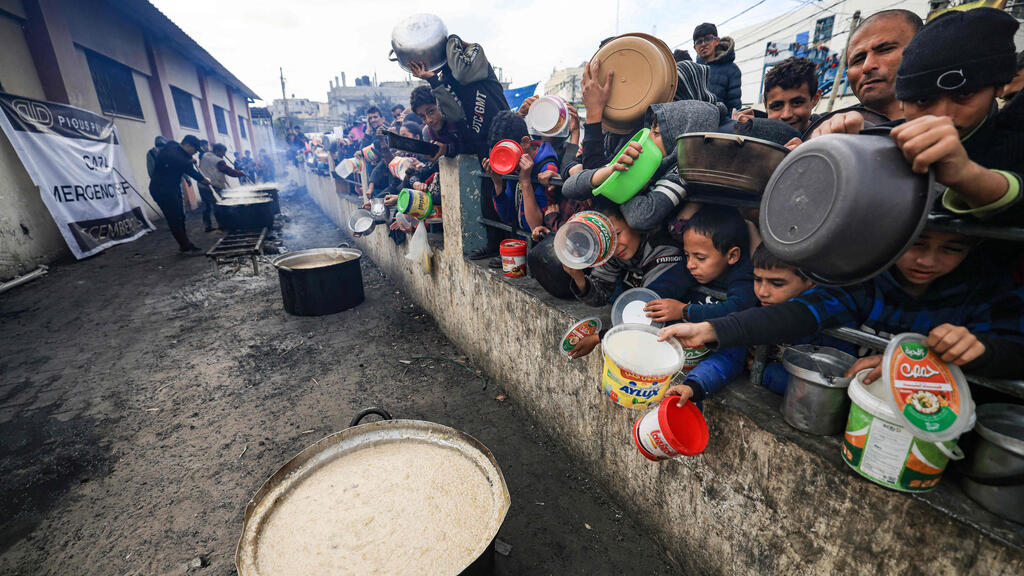Getting your Trinity Audio player ready...
CIA chief William Burns arrived in the region to visit Egypt and Qatar as the U.S. goes to great lengths to secure a hostage release deal in exchange for a cease-fire before the Muslim holy month of Ramadan begins early next week. Burns is not expected to visit Israel.
More stories:
Israeli officials said that despite the efforts, they were not optimistic that an agreement with Hamas can be reached because the terror group does not want one.
"Hamas made the decision not to advance in the negotiations and to blame Israel for the hunger in Gaza, and to flood media outlets to turn them against Israel."
The war cabinet convened on Thursday evening and will be followed by a meeting of the larger security cabinet.
The government was surprised to learn that U.S. President Joe Biden intended to announce in his State of the Union address later that the Americans would build an offshore pier to enable delivery of aid to Gaza.
The officials said they were aware that the Americans had already visited the Strip to identify the optimal location but were not informed of the findings or of the presidents intention to announce the move. This is considered another sign of the increasing tensions between the administration and the government of Prime Minister Benjamin Netanyahu.
On the matter of the hostage negotiations the officials said Israel was currently not involved in discussions. "Sinwar and Haniyeh understand that a deal would bring about a cease-fire and an influx of humanitarian aid which would improve conditions in the Strip, which is something they do not want," the officials said.
"They believe that if there is no deal during the Muslim holiday, Israel's standing in the world would suffer more. As far as we are concerned the rest is just theatre," he said.
American officials also blamed Hamas for the failure of negotiations. "Hamas rejected the deal and refuses to release the old and infirmed hostages," the officials said adding that the responsibility is on the terror group.
The Wall Street Journal in a report earlier in the day quoted Egyptian officials who said Hamas leader Yahya Sinwar believes he has the upper hand because of the internal political divisions within Israel and the increasing pressure of the U.S. administration on the Israelis to do more to ease the suffering of civilians in Gaza.
The Egyptians told the paper that Sinwar hopes for more favorable terms in the wake of the growing tension between Jerusalem and Washington and that he would be able to achieve an end to the fighting and a complete withdrawal of IDF troops.
The report cited Israeli and Arab sources who said Sinwar was "deliberately undermining the talks in the hope that Ramadan will galvanize popular Arab support for Hamas, leading to an escalation of tensions in the West Bank and Jerusalem."




